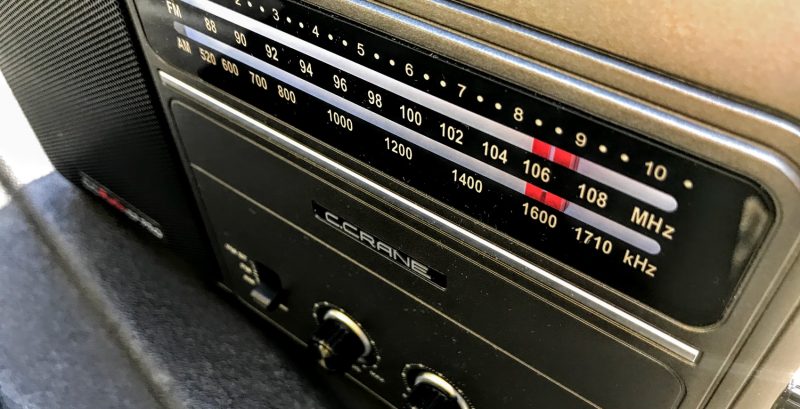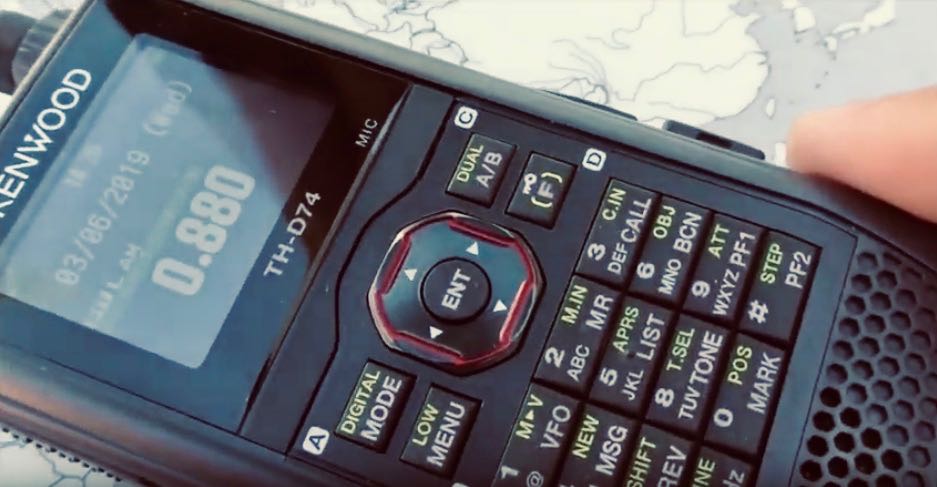Radio Waves: Stories Making Waves in the World of Radio
Welcome to the SWLing Post’s Radio Waves, a collection of links to interesting stories making waves in the world of radio. Enjoy!
Many thanks to Eric Jon Magnuson for summarizing these news items for Radio Waves!
Hubbard Is Four Years In With All-Digital AM. Here’s How It’s Doing. (Inside Radio)
It has been just over four years since Hubbard Radio’s adult alternative “The Gamut” WWFD, Frederick, MD (820) powered down its analog signal and began operating as a digital-only AM station under experimental authority granted by the FCC. Since then, new FCC rules permitting all-digital AMs industrywide have broadcasters taking a closer look at WWFD as they consider options for struggling AMs.
WWFD posted a 1.5 share (12+) in Nielsen’s Frederick, MD spring survey with a weekly cume of 3,300. Before it went all digital, Dave Kolesar, Senior Broadcast Engineer at Hubbard and the station’s PD, says it was a ratings no-show, “a wasted signal.”
The idea for making the all-digital leap came around Christmas 2016 when Kolesar concluded that a music format on AM – even one as differentiated as The Gamut’s expansive playlist – was “pretty much a nonstarter that exists for the purpose of having an FM translator. In all-digital mode, the AM signal has the capability of becoming relevant again” with digital sound quality, and artist and album title and album artwork displays.
According to Xperi, about 35% of cars on the road in the DC market are equipped with HD Radio receivers. Yet only a small fraction of listening to radio in the market is to AM radio. The station focuses on the one-third of the market that could enjoy a music format that looks and feels like any other service in the dashboard. The strategy involves using the FM translator as promotional vehicle for the digital AM frequency: “when you’re outside the coverage area of our 94.3 FM signal, tune into 820 and hear us while you’re driving around,” Kolesar explains. [Continue reading…]
OPINION: Remembering the glory days of pirate radio 55 years on (Eastern Daily Press)
Radio DJ Tom Edwards looks back at his youth spent broadcasting off the East Anglia coast
Although I’ve lived in Lincolnshire for nearly 30 years having been born and educated in Norwich, I will of course always be a Norfolk man. At 77 years of age now I’ve been a broadcaster for 57 of those years.
During Easter of 1964 a somewhat mysterious radio station came on the airwaves playing non-stop music and the presenters seemed to be just ad libbing at the microphone in contrast to the rather staid BBC light programme which hardly played any popular music. The station turned out to be the now famous Radio Caroline, which was transmitting from a ship off the East Anglia coast.
I was a Bluecoat at Pontins holiday camp at Pakefield and the site had a Radio Pontins Tannoy system so I asked the boss for some money to buy some 45 hit singles which he agreed to and so started doing record requests for the happy campers.
Other stations, whether they were ships or wartime fortresses, suddenly began to appear right around the coast of the UK. Apart from Caroline there were other stations including Radio London, Radio England, Radio270 and Radio 390.
The more I heard of these stations, which were becoming so popular with an estimated audience of 22 million, the more I wanted to be out there at sea with them. I wrote and sent tapes of my Pontins shows to all of them. While on a few days off in Norwich, a man called Reg Calvert called me and said he liked what he heard and offered me a weekend try out on Radio City. [Continue reading…]
AIR’s Station At 9,000 Feet Along LoC In Kashmir Broadcasts Programs For People Living Across Border (India Times)
Surrounded by the barbed wires, dense deodar trees and Pir Panchal mountains in the backdrop, this is the All India Radio (AIR) Srinagar’s Radio Station which has been set up close to the Line of Control (LoC) in Rustum area of J&K’s Uri sector.
Set up in November 2020, the station has been built 9,000 feet above the sea level.
The radio station has been set up with an aim to provide access to the Kashmiri people living on the other side of the border to listen to their favourite programs.
“The local news, music programs and especially Pahari and Gojari programs are aired from this station for the Kashmiri population living on the other side of the LoC,” said Qazi Masood who heads the station in Uri. [Continue reading…]
Podcast Collaborations: The positives, the pitfalls, and the public interest (Public Media Alliance)
Three top public media podcast executives discuss with PMA the benefits and complications that come with collaborations, and how ultimately, they can help public media organisations fulfil their public service obligations.
As the podcast market globally becomes ever more saturated and competitive, PMA invited three top podcast executives from three leading public media organisations to discuss how collaborations might provide the pathway for public media organisations to remain the premier podcast producers. It came after a talk about podcast collaborations at Radiodays Europe in Malmö, Sweden in May 2022.
They spoke to PMA’s Editorial Manager, Harry Lock.
Harry Lock: Could you give me some examples of podcasts which you’ve worked on where you collaborated with another organisation? How does it actually work logistics-wise?
Arif Noorani, Director of CBC Podcasts: Hunting Warhead is a collaboration we did with VG, Scandinavia’s biggest newspaper, on a story they’d spent more than two years on (it was nominated for a Prix Italia.) Production wise – CBC led the podcast and embedded a VG team member in the production team providing contacts, research and notes on scripts.
We have three international co-productions with the BBC World Service – launching in the next year. It’s an equal joint effort – Jon Manel, commissioner for the BBC World Service and I co-lead all aspects of the project. We think the combined heft of CBC Podcasts and the BBC World Service was attractive. We meet weekly and more (along with Whatsapping each other if it’s urgent) to discuss production, content, rollout and all the business side of things. We have one point person between the production teams and the BBC/CBC to keep it streamlined. To make this work, you have to have lots of trust between all sides, and a shared vision of the type of content you want to make (in this case journalistically-driven serialised narrative storytelling rich in characters and heartbeat). Jon and I have informally collaborated for a few years so that really helped. We’ll also combine our audience building, digital and marketing efforts in the launch and rollout.
Andrew Davies, Digital and Engagement Editor, ABC Australia: Co-productions and collaborations with external organisations/partners is still a relatively new area for the ABC in podcasting. There have been a number of collaborations between Radio National (ABC’s specialist talks network) and the BBC but those have mostly been radio focused. The ABC’s Audio Studios team did a co-production with WNYC Studios a few years ago with Short & Curly, our very popular ethics podcast for children.
More recently we’ve worked with Arif and the CBC Podcasts team around the release of series two of our popular Stuff The British Stole podcast. That involved the CBC team helping with audience building (through cross-promotion, publicity, marketing and digital/social content) in the North American market. That was a really successful collaboration and we were excited to work with the CBC as we knew they recognised not just what a great show it is but also wanted to help it reach a bigger audience. There were a large number of people involved from both broader teams but I want to echo Arif’s point about having clear point people on both sides to keep things streamlined.
Tim Watkin, Executive Producer of Podcasts & Series, RNZ: RNZ Podcasts has produced 46 podcasts in partnership with 38 different organisations. That includes other broadcasters and media, production houses and funders. Collaboration can take many forms.
The most common form of collaboration for RNZ is where we make a podcast alongside an independent production company. For example, Eating Fried Chicken in the Shower is a series that was pitched to us by an independent producer, Charlie Bleakley, and host James Nokise. RNZ paid for the series but was very hands-on, more than a mere commission. We provided a supervising producer, sound recordist on location, draft audio edits, studios for the final mix and promotion. [Continue reading…]
Do you enjoy the SWLing Post?
Please consider supporting us via Patreon or our Coffee Fund!
Your support makes articles like this one possible. Thank you!



